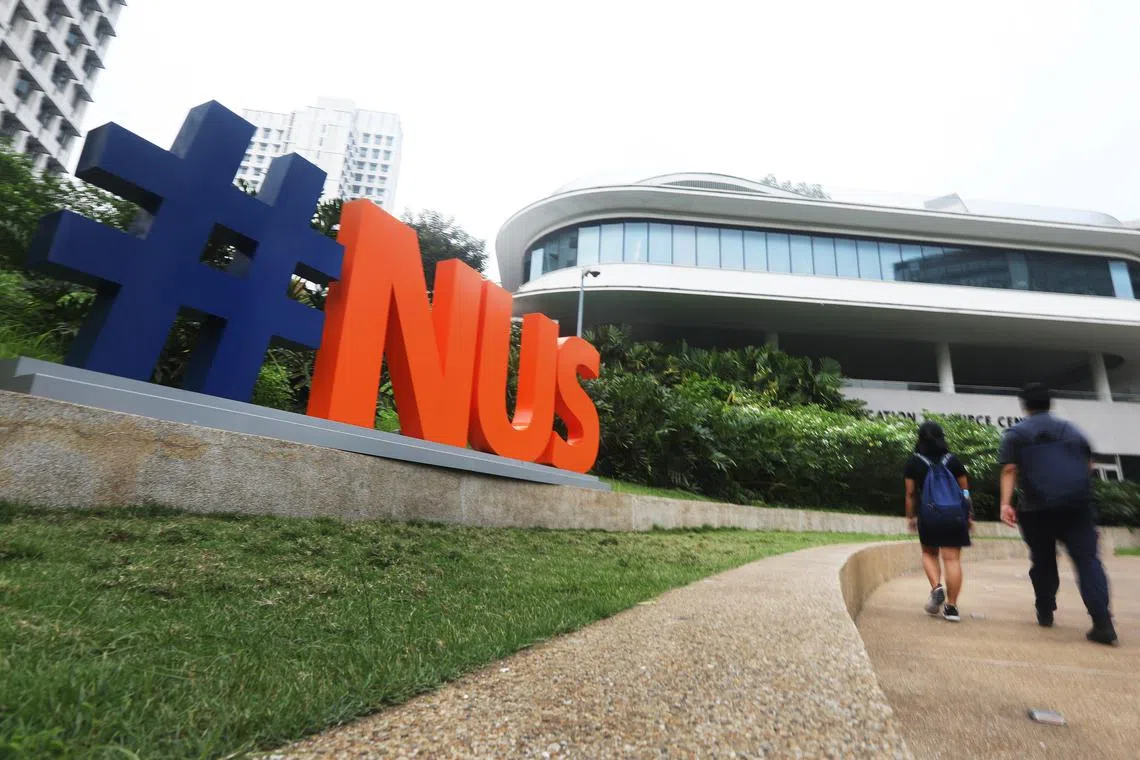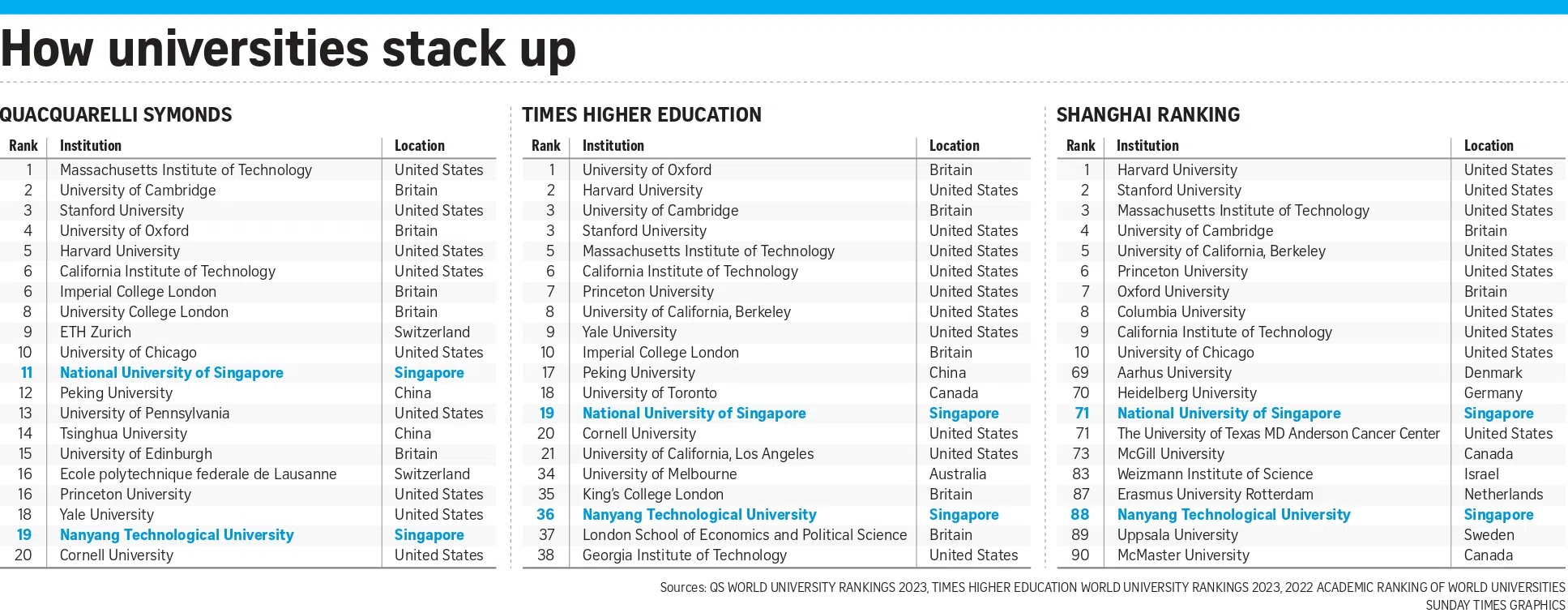askST: How can I make use of university rankings?
Sign up now: Get tips on how to help your child succeed

Students could instead make use of more granular rankings that focus on subject areas to gauge universities’ relative strengths in particular disciplines.
PHOTO: LIANHE ZAOBAO
How should students make sense of the numerous university rankings out there? The Sunday Times offers some answers.
Q: How reliable are these rankings?
A: The three most well-known global rankings are Times Higher Education (THE), Quacquarelli Symonds (QS) and Academic Ranking of World Universities (ARWU).
There are some variations across the ranking methodologies, but they largely order universities on the basis of criteria such as institutional reputation, research output and citations, and staff-to-student ratio.
They are useful for tracking how universities perform over time vis-a-vis their peers and to compare universities on a global level, as long as you are aware of the quirks of each ranking system due to the different methodologies they use.
League tables by ARWU – produced by an organisation spun off from Shanghai Jiao Tong University – and THE focus mainly on research excellence.
THE’s rankings measure universities’ research and industry income, among other indicators. THE said it takes into account the fact that research grants for science subjects are often bigger than those awarded for social science, arts and humanities research.
Meanwhile, ARWU places heavy emphasis on the number of Nobel Prize winners, field medallists and highly cited researchers among faculty members and alumni.
And QS rankings prioritise a university’s reputation among academics and employers, using global surveys of these two groups to evaluate a school’s performance, along with other indicators such as research citations per faculty member.
THE and QS also rank institutions by subjects, grouped into broad categories such as arts and humanities, engineering and life sciences.
Experts have said that some of these criteria are subjective, and reducing a university’s performance to a single score does not accurately capture its worth.
These rankings also do not cover many other important aspects, such as how universities engage with their communities and teaching quality.
The value of the rankings thus depends on the concerns of those reading them, said Professor Peter Coclanis, who is Albert Ray Newsome Distinguished Professor of History at the University of North Carolina at Chapel Hill.
“For example, a scheme such as the Shanghai ranking places a lot of weight on scientific research, citations and prizes – factors that might not mean all that much to someone looking for a good school to study subjects such as literature, religion or history,” he said.

Q: How do I best make use of rankings in choosing a university?
A: Rankings can hold some value when their limitations are taken into consideration.
Emeritus Professor Arnoud De Meyer, who was previously president of Singapore Management University, said research rankings are probably of little relevance when choosing a university for an undergraduate degree, with data on career opportunities upon graduation being more useful.
“But for choosing a PhD programme, a research ranking is quite important, as one may want to work with the best researchers… and your career prospects are also better when you graduate with a PhD from a university with a high ranking in research,” he added.
Students could instead make use of more granular rankings that focus on subject areas to gauge universities’ relative strengths in particular disciplines.
But experts said that students should not rely on rankings alone when choosing a school or field of study.
Dr Jelena Brankovic, a sociologist from Germany’s Bielefeld University, said: “One can, of course, look at rankings, in the same way that one can look at flashy campus photos on university websites and expensive promo videos – critically and sceptically.”
She advises prospective students to inform themselves widely, as deciding what and where to study is likely to be one of the most important decisions they will ever make.
Q: What other information can I rely on?
A: Dr Elizabeth Gadd, research policy manager at Loughborough University in Britain, recommends that students make a detailed study of what they value about a university education, collect relevant information and make their own decisions.
A spokesman for THE said students can use rankings as a starting point, supplementing their decision with more research and university visits if possible.
In the Singapore context, students can refer to other data such as the Graduate Employment Survey put out by the autonomous universities annually to gauge employment rates and starting salaries by field of study.
They should also consider other information not usually collected by rankings agencies, said Professor Bernard Tan, NUS’ senior vice-provost for undergraduate education.
“This includes the quality of graduates and their employability; vibrancy of campus and student life; variety of financial aid schemes; opportunities for global exposure (such as student exchanges and overseas internships); entrepreneurial culture; community engagement; teaching innovation; interdisciplinarity (where students can specialise in two or more areas); strength of alumni network; and diversity of faculty and students,” he said.
“The testimony and validation of peers may also contribute to decisions around university applications.”
Some ways to get such information include attending open houses and virtual tours to better understand programmes and courses one may be interested in. Speak to faculty members and students to find out about their actual experiences, and look into other opportunities outside academic studies that a college offers.




